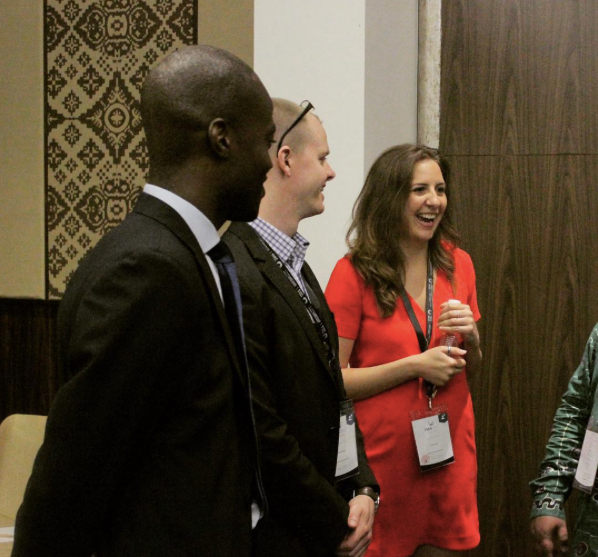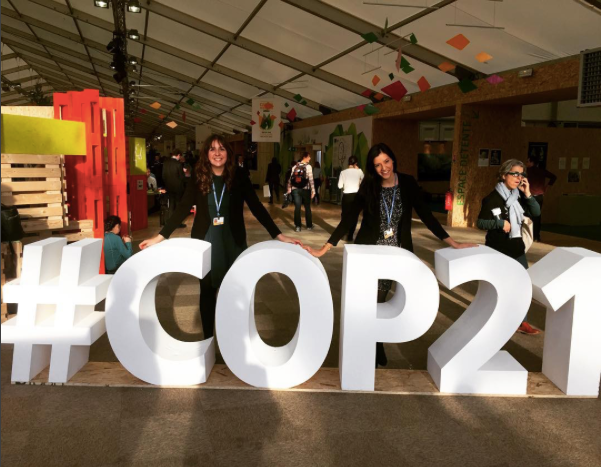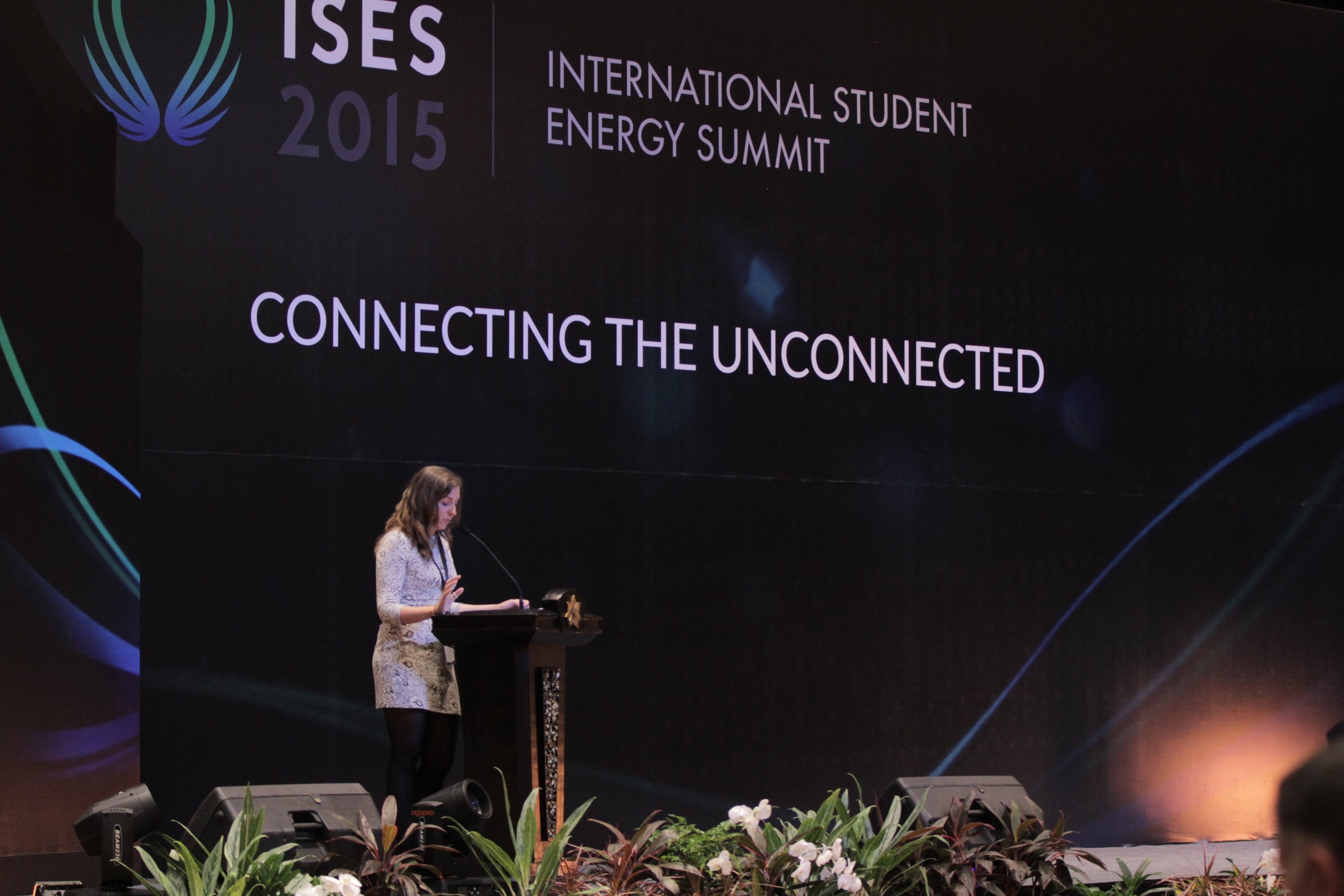Written by Kali Taylor (GDIP '14)
My trusted UWaterloo Faculty of Environment water bottle follows me everywhere I go these days. Inscribed in white letters on the bright green metal of the bottle is a mini checklist.
Today I’m going to:
- Plan a city
- Fly a plane
- Make a business green
- Create a map
- Get my hands dirty
- Mitigate climate change
- Shape a community
- Change the world
That is why I carry the bottle; it is a subtle and persistent reminder of what I have dedicated my career to working on – creating a sustainable, equitable planet.

I started working on the concept of Student Energy with several friends when I was studying for my undergraduate degree. At 19, I took on my first role in the energy industry and having the experience of working in oil and gas at such a young age did two things – first, it made me incredibly excited about the energy industry and its potential to transform lives. Second, it made me see how broken our energy systems are and how badly innovation and new thinking is needed in the industry. My solution was Student Energy. My co-founders and I believed that if we helped to empower the next generation of leaders who would run the industry, we could transform it from the inside out.
The idea caught on quickly, presumably because many other young people felt as I did about the potential of the energy industry. Within a few years of our first event we were a functioning not-for-profit with initiatives happening all over the world and my co-founders and I were labeled social entrepreneurs (a title I excitedly accepted)!

The things I learned at UWaterloo helped me to see the interconnectedness of systems in ways I hadn’t before. When people think about energy, they often think about electricity stations, barrels of oil or media fights over pipelines but with a systems lens it is possible to see energy in a much broader context. Energy enables a high quality of life for people through the services it provides. Having access to energy means the ability to stay up later and study, charge a cell phone so you can run a business, or have refrigeration that keeps vaccinations from expiring. In these ways, energy is an integral part of poverty reduction, health, education, and countless other systems. Similarly, the way we produce and consume energy can have tremendous impacts on our earth’s physical systems. It affects the way we use land, the health of our oceans, lakes and streams, and the quality of the air we breathe. I now have a passion to not just influence one industry but to transform the entire system as we currently know it.

Being equipped with the ability to look at societal challenges as interconnected pieces of a global system makes us better prepared to tackle them. The University of Waterloo provided me with that frame of thinking and for that I am forever grateful.